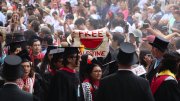When Harvard announced that 13 students would not be allowed to graduate this spring due to their involvement in the pro-Palestine encampment, activists organized their own graduation.
During the conferral of degrees Thursday morning, hundreds of graduating students—perhaps as many as a thousand people in total—walked out of Commencement. Raising banners and waving Palestinian flags, protesters chanted, “Let them walk” as they snaked around Tercentenary Theatre, making their way to the exit. Streaming out of the Yard, they walked north up Massachusetts Avenue, where police motorcycles blocked traffic and protesters chanted over drumbeat, and into Harvard-Epworth United Methodist Church beside Harvard Law School. There, protesters held what they called “The People’s Commencement.”
The protest, tailed by a few community members and counter-protesters, was one of this semester’s largest. The alternative graduation drew both the core group of students who had been protesting for Palestine as well as students sympathetic to the cause, but newly incensed by the sanctions imposed on their peers. “I think this has now gone beyond Israel-Palestine,” said a senior. Barring students from graduating “represents a grave violation of the principles that this University stands for,” he continued.
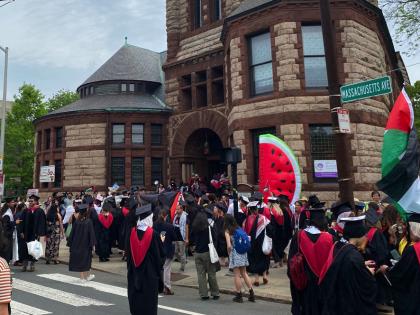
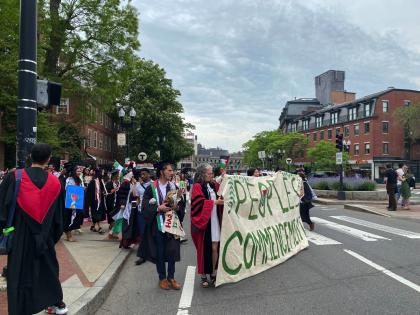
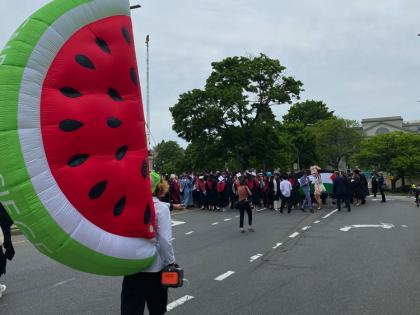
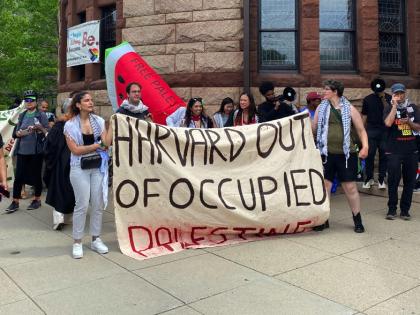
As hundreds filed into the church, fanning themselves in the sweltering heat, some of the students barred from graduation sat up on the stage. Winthrop professor of history and professor of African and African American studies Walter Johnson delivered an alternative commencement speech. “Very simply put,” he told the crowd, “our University has punished you for believing in the things that we have taught you.”
For some, the alternative graduation felt like a better representation of Harvard than the actual graduation. “This moment has been such a moment of community,” one senior said. “Within Commencement, where they’re talking about community in different ways, I see it here outside of Commencement,” she continued.
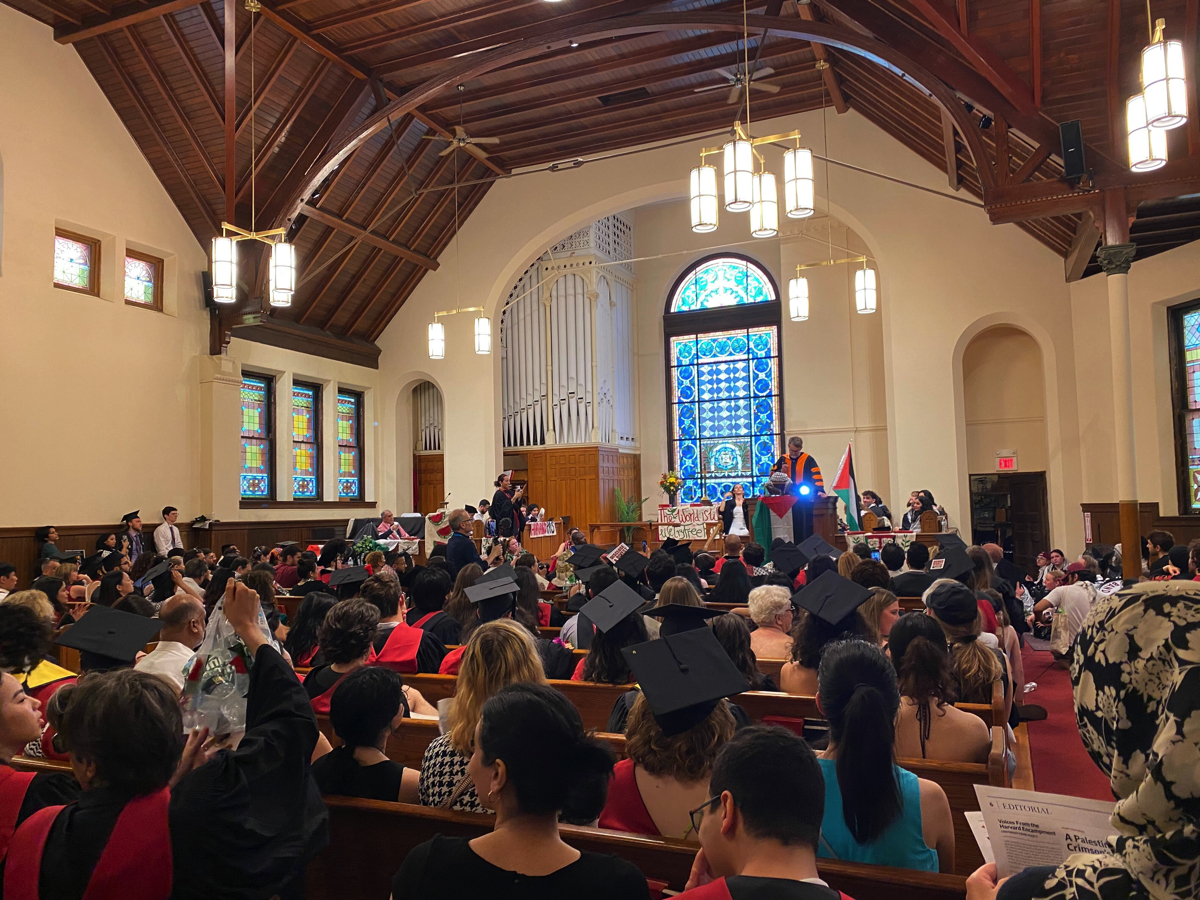
The protesters felt strengthened by the two student English addresses at Commencement. Shruthi Kumar ’24 and Robert Clinton, J.D. ’24 went off-script to lend support for the non-graduating 13 seniors. “I am deeply disappointed by the intolerance for the freedom of speech and the right for civil disobedience on campus,” said Kumar. One junior protester said that the speeches made him feel “very powerful,” continuing, “I literally got goosebumps.”
For that junior, walking out of graduation symbolized how deeply students care about the issues surrounding the war in Gaza and their ability to speak freely about them. “There’s so many people who support this and were willing to let go of this day that they’ve been [a]waiting for four years…to support what they believe is right,” he said. “It was just powerful. It was very emotional.”
Read a full report on the day's events, and Commencement week, here.
